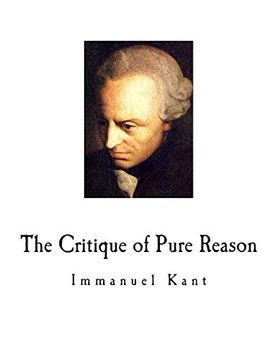The Critique of Pure Reason: Immanuel Kant (Classic Immanuel Kant - Western Philosophy) (in English)
Synopsis "The Critique of Pure Reason: Immanuel Kant (Classic Immanuel Kant - Western Philosophy) (in English)"
The Critique of Pure Reason by Immanuel Kant and translated by J. M. D. Meiklejohn. The Critique of Pure Reason is a book by Immanuel Kant that has exerted an enduring influence on Western philosophy. Also referred to as Kant's First Critique, it was followed by the Critique of Practical Reason (1788) and the Critique of Judgment (1790). In the preface to the first edition Kant explains that by a critique of pure reason he means not "a critique of books and systems, but of the faculty of reason in general, in respect of all knowledge after which it may strive independently of all experience" and that he aims to reach a decision about "the possibility or impossibility of metaphysics in general". Of the difference between Pure and Empirical Knowledge: That all our knowledge begins with experience there can be no doubt. For how is it possible that the faculty of cognition should be awakened into exercise otherwise than by means of objects which affect our senses, and partly of themselves produce representations, partly rouse our powers of understanding into activity, to compare to connect, or to separate these, and so to convert the raw material of our sensuous impressions into a knowledge of objects, which is called experience? In respect of time, therefore, no knowledge of ours is antecedent to experience, but begins with it. But, though all our knowledge begins with experience, it by no means follows that all arises out of experience. For, on the contrary, it is quite possible that our empirical knowledge is a compound of that which we receive through impressions, and that which the faculty of cognition supplies from itself (sensuous impressions giving merely the occasion), an addition which we cannot distinguish from the original element given by sense, till long practice has made us attentive to, and skilful in separating it. It is, therefore, a question which requires close investigation, and not to be answered at first sight, whether there exists a knowledge altogether independent of experience, and even of all sensuous impressions? Knowledge of this kind is called a priori, in contradistinction to empirical knowledge, which has its sources a posteriori, that is, in experience.

